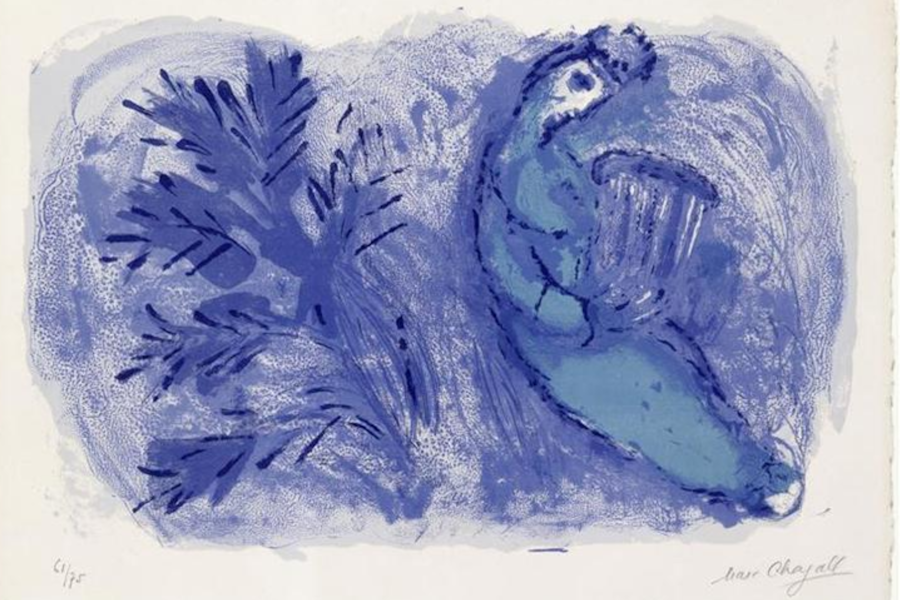Who taught you how to pray? Who or what have been models of prayer for you?
What type of language and words do you use in prayer? I’ve noticed, for instance, that many Christians use the word “just” a lot in prayer. “Lord, we just ask that you bless our worship today. We just pray that there would be a movement of your Spirit in us today. We just confess our sins to you.” Why do we use “just” so often in prayer? In all likelihood, because we’ve heard others praying this way. Perhaps most of us have never thought much about the language we use in prayer or the models of prayer we imitate or have assimilated from our Christian community.
I bring up the issue of models for prayer because ancient Christians like the church fathers believed that our disposition — our character as manifested in deeply habituated patterns — is significantly shaped by those we listen to and imitate.
There are, for instance, some people who really know how to pray and are worth imitating. King David comes to mind. A principal reason the ancient church prayed the Psalms again and again — some early monastic communities prayed all 150 Psalms each day — was the firm belief that through the repetition of the Psalms our character — our disposition toward God and our neighbor — is honed and healed. As we pray the Psalms, the dispositions of the psalmist become our own. Early monastic communities offered this model of repetitive prayer to the church.
As Christians prayed the Psalms day and night, they expected that David’s experiences in prayer and spiritual formation would become their own. Athanasius emphasizes this point in his letter to Marcellinus on how to interpret the Psalms. The “astonishing thing in the Psalms,” Athanasius coaches, is how they lend themselves to personal appropriation: “the one who hears is deeply moved, as though he himself were speaking, and is affected by the words of the songs, as if they were his own songs.”
The experience of the psalmist, whether it is the confession of sin, the experience of persecution or the exaltation of worship, slowly seeps into the consciousness of those who pray them. “He who recites the Psalms is uttering the rest as his own words, and each sings them as if they were written concerning him, and he accepts them and recites them not as if another were speaking, nor as if speaking about someone else. But he handles them as if he is speaking about himself.”
The Psalms are like a “mirror to the person singing them, so that he might perceive himself and the emotions of his soul, and thus affected, he might recite them.” As David confesses his sins, those who pray with him confess their own.
“For in fact,” Athanasius writes, “he who hears the one reading receives the song that is recited as being about him, and either, when he is convicted by his conscience, being pierced, he will repent, or hearing of the hope that resides in God, and of the succor available to believers — how this kind of grace exists for him — he exults and begins to give thanks to God.”
John Cassian reiterates Athanasius’s point: “Penetrated by the same feelings in which the psalm was composed, it is as if we became the authors of it … The sacred words reawaken our experience, reminding us of the assaults we have undergone and still undergo, every day, of the marks of our negligence or, on the contrary, of our fervor, blessings of divine visitation or wiles of the enemy, the havoc wrought by the forgetfulness that is so ready to creep into our soul, our frailty … and our blindness.”
The Holy Spirit knows we need help learning how to pray; the Spirit knows we are apt to stumble and perhaps lose our way if we exclusively rely on our own words and thoughts in prayer. Cassian’s and Athanasius’s point is that it is our thoughts, words and actions that need remolding, reshaping. We need mentors in prayer, and the psalmist is one of the best. If we listen carefully, immersing ourselves in the Psalms our own dispositions will change, in prayer and out.
One last point on the Psalms: for the church fathers, Christ was present everywhere in the Psalms. Should this surprise us? It was his Spirit that inspired the psalmists to pray. As Augustine puts it: “When we listen to the Psalms … we must pay attention to seeing Christ, to discerning him … Yes, he will show himself to those who seek him, he who appeared to people who were not seeking him. He who saved those who scorned him will not shun those who desire him.”
Art: David by Marc Chagall, 1956. Public domain.
Text First Published March 2018 · Last Featured on Renovare.org January 2025


